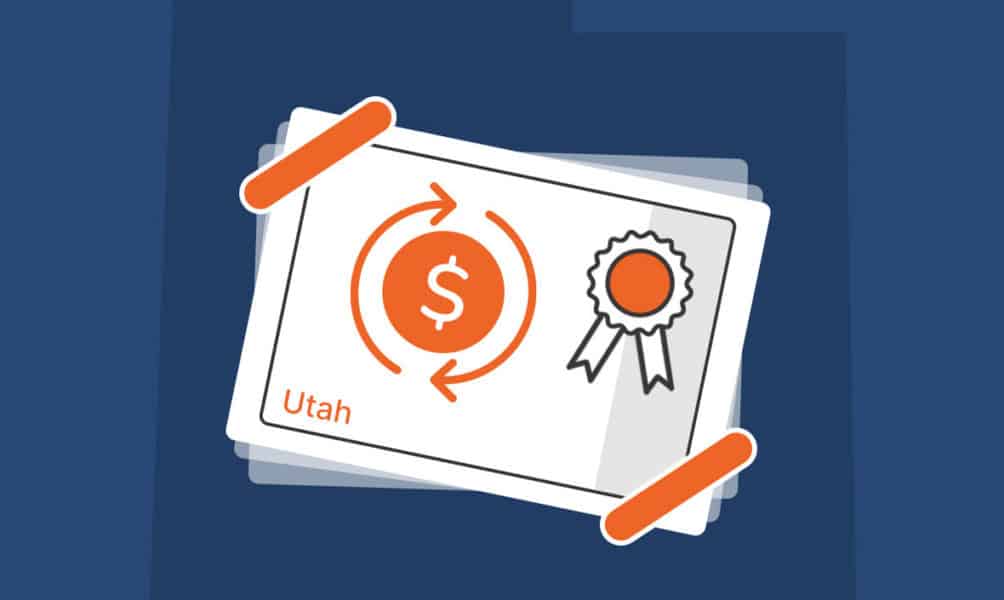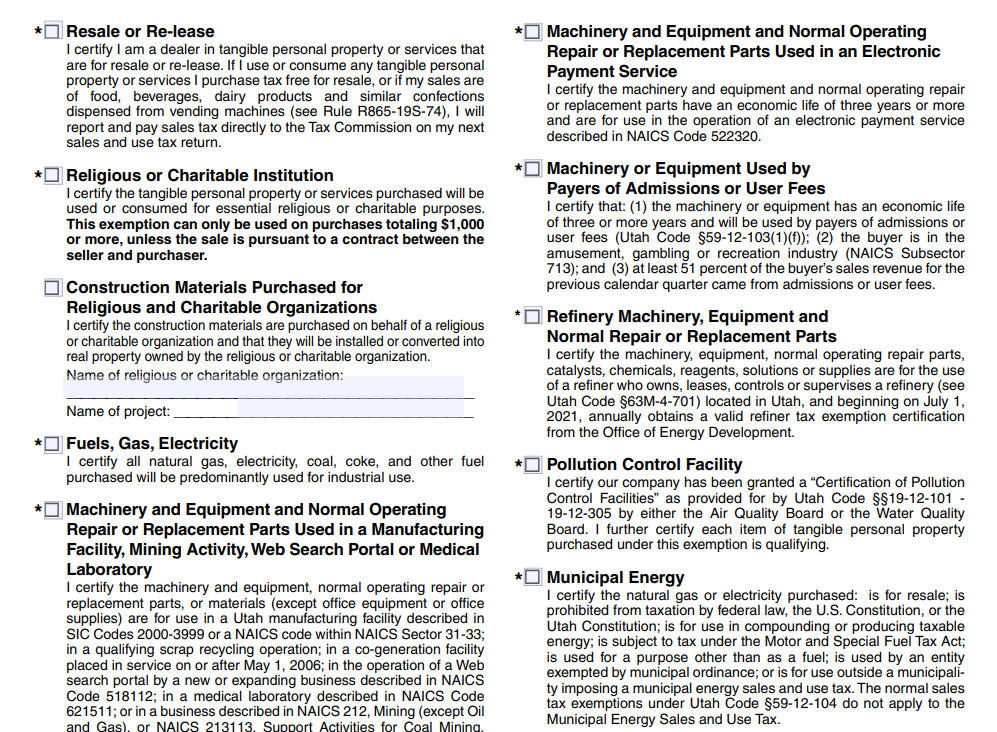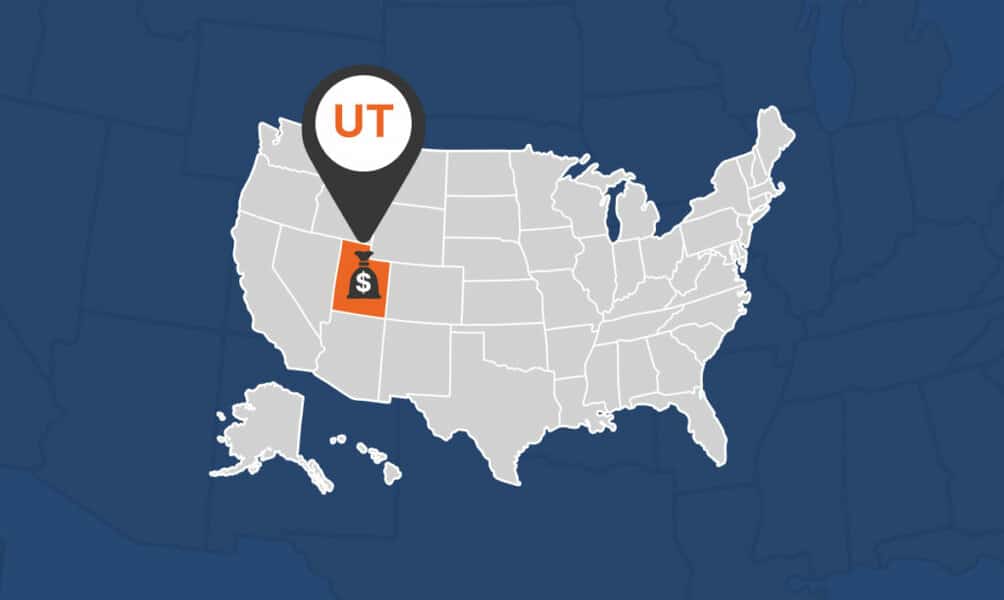If your business sells physical products or certain types of services, you will need to collect and pay sales tax. In Utah, the first step isvisitin ...
How to Get an Exemption Certificate in Utah
Written by: Natalie Fell
Natalie is a business writer with experience in operations, HR, and training & development within the software, healthcare, and financial services sectors.
Edited by: David Lepeska
David has been writing and learning about business, finance and globalization for a quarter-century, starting with a small New York consulting firm in the 1990s.
Published on July 7, 2022

If you have recently launched or are planning to launch a business that will sell products or services in Utah, you may want to get an exemption certificate, or several of them, before you start doing business, as this can save you a lot of time and money. This document is known as a resale certificate in most other states.
It’s a relatively simple process, as detailed in this step-by-step guide.
What is an Exemption Certificate?
If your business has a valid exemption certificate, you can buy goods from a wholesaler without paying Utah sales tax, though you may pay a use tax. Depending on the size of your business, this can save you tens of thousands of dollars each year.
The catch is that whenever you do use an exemption certificate to purchase goods, you are legally bound to resell those items and collect sales tax when you do so. If you do not resell those items, or fail to collect sales tax, the punishment could be a costly fine or potential jail time.
Keep in mind, each exemption certificate, also known as a resale license, applies to a single vendor. This means you’ll need an exemption certificate for each one of your vendors.
You cannot use an exemption certificate to buy items you do not intend to resell, such as a new computer for your business. This would be tax fraud, a felony offense. You are only able to buy items tax-exempt if you are going to collect sales tax on them later.
Not all wholesalers will accept exemption certificates, nor do they have to. They may choose not to because of the risk of expired or false certificates, which would put the wholesaler on the hook for the sales tax.

How to Apply for an Exemption Certificate in Utah
In Utah, you’ll need to obtain the form from the State Tax Commission. The certificate is not filed with the state of Utah, it’s simply kept on file by the seller.
In a few states, a seller’s permit, or sales tax permit, also serves as an exemption certificate that applies to all vendors. But in most states, including Utah, you’ll need a seller’s permit for your business as well as exemption certificates for each of your vendors.
The seller’s permit identifies you with your state as a collector of sales tax. If you sell tangible personal property or goods you are required to have a sales tax permit. In some states, even a service provider like a lawyer is required to have a sales tax permit and collect state sales tax.
The exemption certificate applies to items that you buy for resale, or for parts that you buy to manufacture something for sale.
How to Fill out the Utah Exemption Certificate
In Utah, the State Tax Commission handles the issuance of exemption certificates. Start by visiting the website, then follow these simple steps:
- Under the “What is an exemption certificate” heading, click on the TC-721 link to download the form.
- In the top section, enter your contact information along with the sellers. NOTE: in other states, the signature field is at the bottom of the form. In Utah’s, it is in this top section.

- The remainder of the form contains a series of checkboxes which may or may not apply to your business needs. Review the boxes and check them off as appropriate.

- Lastly, at the bottom of the form, click “print” to print a hard copy or save to your computer.

For assistance, contact the Utah State Department by phone at 801-297-2200 or by email at taxmaster@utah.gov.
Does a Utah Exemption Certificate Expire?
In Utah, exemption certificates are good as long as the buyer makes at least one purchase every 12 months.
Conclusion
Exemption certificates can be a bit of a hassle, but in Utah they are an absolute necessity. So take the time to get certificates for each of your vendors to ensure full compliance with your state’s tax regulations.
Subscribe to Our Newsletter
and gain insider access to cutting-edge business insights and trends.
Featured Resources

Utah Sales Tax Calculator
Published on April 5, 2022
Read Now
How to Start an LLC in Utah in 7 Steps
Published on March 17, 2022
Here are the steps you need to take to start a limited liability company (LLC) inUtah: Choose a name for your Utah LLC: Your business name must ...
Read Now

Starting a Business in Utah: 13-Step Guide
Published on December 7, 2021
When you think of Utah, you might think of Mormons or Salt Lake City. But this is a state with a wealth of treasures, from the snowy peaks of theWas ...
Read Now
Comments